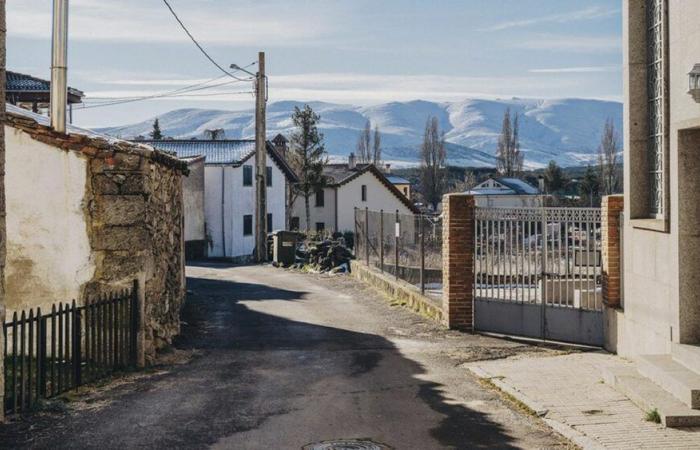The housing issue in Spain has long been at the heart of political and social concerns. The 2008 real estate crisis left deep scars, with a burst real estate bubble, thousands of abandoned buildings and a population facing increasing difficulties in accessing decent housing. In response to this persistent situation, the government of Pedro Sánchez enacted the first housing law of the Spanish democracyaiming to transform the real estate market and guarantee the right to housing worthy and affordable.
The historical and economic context of the housing crisis in Spain
The real estate bubble and its burst in 2008
In the early 2000s, Spain experienced rapid economic growth, largely fueled by the construction sector. This period, commonly called the Movidawas marked by an exponential increase in real estate pricescreating a speculative bubble. Banks extended massive mortgage loans, often without rigorous assessment of borrowers’ creditworthiness.
In 2008, the bubble burst, leading to a financial crisis major. It struck Spain in 2012causing house prices to collapse and leaving many homeowners with mortgages higher than the value of their property. Thousands of buildings were abandoned and the unemployment rate skyrocketed, exacerbating economic insecurity.
The social and economic consequences of the real estate crisis
The bursting of the real estate bubble had profound repercussions on Spanish society. Many families were expelled from their homes due to inability to repay their mortgages. Younger generations have been particularly affected, facing a precarious job market and increased obstacles to accessing property or even renting.
The crisis has also highlighted questionable banking practices and insufficient regulation of the real estate sector. In 2024, the situation remains worrying, with forecasts indicating a worsening of the housing crisis in 2025, notably an increase in purchase price between 4% and 10% and rents of more than 7%.
The ” housing law » by Pedro Sánchez: objectives and key measures
The main objectives of the housing law
Faced with the persistence of difficulties in accessing housing, the government of Pedro Sánchez introduced the « housing law»with the ambition of guarantee the constitutional right to dignified and affordable housing. The stated objectives of this law include regulating rent prices, increasing the supply of social housing, protecting tenants against unfair evictions and combating real estate speculation. President Sánchez highlighted the importance of this law by stating: “I don’t want a country of rich landlords and poor tenants. »
Concretely, he promised to make available 50,000 housing units at affordable prices. Housing which would come from real estate parks abandoned in 2012 after the explosion of the bubble in Spain.
The key measures of the housing law
Rent regulation in tense areas
The law provides for the possibility for autonomous communities to declare certain areas as “tense areas”where rents have seen a significant increase. In these areas, rent control mechanisms can be put in place to limit excessive increases and protect tenants.
For example, in Catalonia, 140 municipalities are already applying this measure, leading to a drop in 5% of the average rental price in the second quarter of 2024, compared to the previous quarter.
Creation of a public housing company
A major initiative announced by Pedro Sánchez is the creation of a “ large public housing company ». This entity will be responsible for building and managing housing intended for affordable rental, with the objective of increasing the public housing stock to 6% and rehabilitating 1.5 million homes by 2030.
Increased tenant protection
The law strengthens the rights of tenants, by extending the duration of rental contracts and limiting security deposits required by landlords. It also introduces measures to prevent evictions without a rehousing solution, thus guaranteeing greater residential stability.
Fight against vacant housing and speculation
Measures are planned to penalize owners of vacant housingin particular specific taxes, in order to encourage the marketing of these goods. The law also aims to restrict the conversion of residential housing into tourist accommodation in areas of high demand, in order to preserve the supply of housing for permanent residents.
The criticisms and controversies surrounding the “housing law »
The impossibility of marketing certain housing
Despite its stated intentions, the law faces criticism regarding its practical implementation. Approximately 15 000 housing remains unfinished, 14,000 are already occupied by families or squattersmaking their marketing difficult, if not impossible. Experts point out that without significant intervention to rehabilitate these properties, the objectives of the law may not be achieved. Furthermore, the administrative complexity and costs associated with the regularization of these accommodations pose additional challenges.
Although there are around 20,000 housing units which could actually be offered, these accommodations are for the vast majority located at the campaignin regions without jobs or efficient transportation to cities.
-Accusations of electoral maneuver
Some political opponents and analysts accuse the government of Pedro Sánchez of using « housing law» as an electoral strategyaimed at attracting young people and the working classes before the general elections of 2024. This law has even been described as « electoral bubble»implying that it is based more on promises that are difficult to keep than on concrete and effective solutions.
One of the main critics of the law, Alberto Núñez Feijóoleader of the Partido Popular (PP), declared that this reform is “a media stunt without solid foundation”. According to him, it does not resolve the structural problems of the Spanish real estate market and could even have perverse effects, in particular by discouraging investments in rental real estate.
Critics also point to the political timing of this initiative, which coincides with a campaign to strengthen support for the Spanish Socialist Workers’ Party (PSOE). Indeed, by targeting sensitive issues like housing, Sánchez seems to want capture the attention of a young electorateoften frustrated by rising rents and limited access to property.
The practical limits and economic risks of this housing law
A limited impact on the real estate stock
Despite the stated objective of increasing the supply of affordable housing, the deficit in social housing remains abysmal in Spain. Currently, only 2.5% of housing in Spain is considered public or socialcompared to an average of 7% in the European Union. According to analysts, even with the efforts promised by the “housing law“, it would be difficult to reach European levels before 2030.
Furthermore, the construction of new social housing could be hampered by budgetary and administrative constraints. Local bureaucracy and implementation delays could significantly slow progress. This is all the more true since housing policies are not under the direction of the central State, but of autonomous communities. So, whatever he says, Pedro Sanchez does not have direct control over housing prices and therefore cannot apply this law without the validation of the leaders of the different regions.
Economic repercussions for private owners
The law, by imposing ceilings on rents in tense areascould deter private investors and real estate developers. This situation risks worsening the supply problem, as owners may prefer to keep their properties vacant or remove them from the rental market.
Other economists warn against possible increase in rents in unregulated areas, because owners could compensate for caps imposed elsewhere.
The challenge of vacant and unfinished housing
Spain still counts hundreds of thousands of unfinished or vacant homesvestiges of the real estate bubble of 2008. If the law provides incentives to put these properties on the market, their physical and legal condition represents a major obstacle. Many of these accommodations require significant renovations and, in some cases, legal disputes or illegal occupations prevent their commercialization.
Reactions from civil society and experts
The civil society is divided on the “Housing law“. Tenant associations, such as thePlatform for People Affected by Mortgage(PAH)welcome this initiative as a step forward to protect tenants and regulate a market often perceived as unfair. However, they also judge the law insufficient and call for more ambitious measures, including a massive increase in public housing stock.
For their part, employers’ organizations and owners’ associations, such as Asval (Rental Homeowners Association), criticize the law by asserting that it creates a legal uncertainty for investors and could harm the competitiveness of the Spanish real estate market.
Conclusion
The« housing law» by Pedro Sánchez represents an ambitious attempt to address a housing crisis that has persisted since the 2008 housing bubble. With clear objectives, such as rent regulation, the creation of a public housing stock and the protection of tenants, this law reflects a political will to guarantee the right to housing in Spain.
However, this initiative is far from unanimous. While some welcome its audacity, others denounce an electoral measure which could have limited effects in the long term. Practical challenges, such as the rehabilitation of vacant housing and budgetary constraints, as well as criticism from investors, highlight the complexity of implementing such a reform in a tense economic context.






